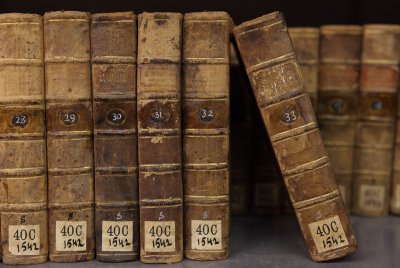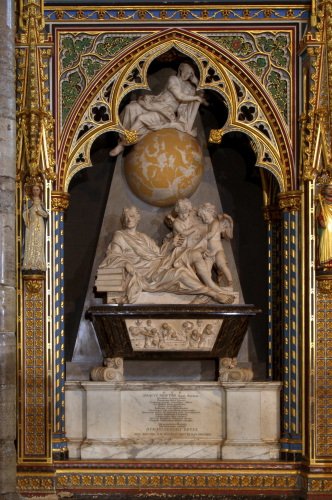The Newton Project

Until the 18th century, alchemists believed that metals could be decomposed into their constituent parts and transmuted into other more expensive metals, such as gold. According to Plato, the four elements are derived from a common source or raw material, associated with chaos. Prima Materia is also the name that the alchemists attribute to the starting material for the creation of the Philosopher's Stone. In the seventeenth century Thomas Vaughan wrote: "The raw material of the Stone is the same as the first question of all things." In particular, Carl Gustav Jung sees in the lapis philosophicae (Philosopher's Stone) the cultural metaphor of the process of psychic evolution of every human being, the microcosm and the macrocosm. Making philosophical mercury was just one of the stages of the alchemical process used to make the philosopher's stone. They believed that this could turn lead into gold, but also help humans get immortality. For these reasons, it was the most sought after substance in 17th century alchemy.
The Newton Project is an online edition of all the writings of Sir Isaac Newton (1642-1727). In addition to his famous scientific and mathematical writings, Newton has also written numerous alchemical texts and many handwritten documents documents. Formed in 1998 under the general direction of Rob Iliffe and Scott Mandelbrote, the Newton project undertook to produce a complete edition of all the printed and unpublished writings of Newton currently based at the Faculty of History, Oxford University. Collaborative work with the Chymistry of Isaac Newton project at Indiana University, Newton Project Canada at King's College in Nova Scotia, and the Cambridge University Digital Library. The project has published more than four million texts made up of Newton's technical writings in physics, mathematics and theology. These are fundamental documents in Western and even global intellectual history, in full, with accompanying images of the originals of which approximately 95% are now available online.

Jusqu'au 18ème siècle, les alchimistes croyaient que les métaux pouvaient être décomposés en leurs parties constitutives et transmutés en d'autres métaux plus chers, comme l'or . Selon Platon, les quatre éléments sont issus d'une source commune ou matière première, associé au chaos. Prima Materia est aussi le nom que les alchimistes attribuent à la matière de départ pour la création de la Pierre Philosophale. Au xviie siècle, Thomas Vaughan écrit : « la matière première de la Pierre est la même que la première question de toutes choses ». Carl Gustav Jung notamment voit dans la lapis philosophicae (Pierre Philosophale) la métaphore culturelle du processus d'évolution psychique de tout être humain , du microcosme et du macrocosme. Faire du mercure philosophique était qu'une des étapes du processus alchimique utilisé pour faire la pierre du philosophe . Ils croyaient que cela pourrait transformer le plomb en or, mais aussi aider les humains à obtenir l'immortalité. Pour ces raisons, c'était la substance la plus recherchée dans l'alchimie du 17ème siècle.
Le Newton Project est une édition en ligne de tous les écrits de Sir Isaac Newton (1642-1727). En plus de ses célèbres écrits scientifiques et mathématiques , Newton a également écrit de nombreux textes et manuscrits alchimiques. Formé en 1998 sous la direction générale de Rob Iliffe et Scott Mandelbrote, le projet Newton a entrepris de produire une édition complète de tous les écrits imprimés et non publiés de Newton actuellement basée à la Faculté d'histoire de l' Université d'Oxford. Le projet a publié plus de quatre millions de textes constitués d'écrits techniques de Newton en physique, en mathématiques et en théologie. Ce sont des documents fondamentaux dans l'histoire intellectuelle occidentale et même mondiale, en totalité, avec les images d'accompagnement des originaux dont environ 95% sont désormais disponibles en ligne. Un travail collaboratif entrepris avec le projet Chymistry of Isaac Newton à l'Université d'Indiana , The Newton Project Canada à King's College en Nouvelle-Écosse et la bibliothèque numérique de l'Université de Cambridge.

En savoir plus :
The Chymistry of Isaac Newton Project
http://webapp1.dlib.indiana.edu/newton/
Newton Project :
http://www.newtonproject.ox.ac.uk/about-us/newton-project
Isaac Newton and Alchemy :
http://webapp1.dlib.indiana.edu/newton/project/about.do
Manuscrits :
http://webapp1.dlib.indiana.edu/newton/browse;jsessionid=0C8F1BCB63E803432B4EE5439DC6EF37
Histoire de la chimie | Chimistes célèbres
http://www.livescience.com/46020-chemistry-history.html
Bibliothèque Numérique Alchimique :
http://www.bnam.fr
Newton's Monument
http://www.westminster-abbey.org/our-history/people/sir-isaac-newton
